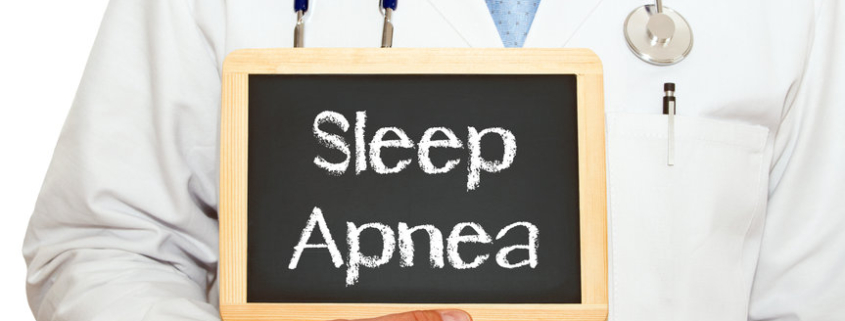Obstructive Sleep Apnea: A Hidden Health Concern
By Daniel Davis, MD | Internal Medicine
Obstructive sleep apnea is a serious condition that affects millions of Americans.
This condition increases risks for things like car accidents and strokes, and it can make other medical conditions worse. Learn more about about the condition, symptoms, how to get screened, treatments, and more.
What are the symptoms?
It can be hard to diagnose sleep apnea because there is a long list of symptoms, and some aren’t very noticeable.
Common symptoms include:
- Daytime sleepiness
- Loud snoring at night
- Pauses in breathing with gasping or choking sounds
- Morning headaches
- Brain fog
- Mood problems
- Frequent urination at night
- Insomnia
- Not feeling rested even after sleeping all night.
Some people with the condition may have minimal or no symptoms at all.
What are risks from having sleep apnea?
Sleep apnea is associated with a very long list of medical problems. Some of the most serious are increased risk of stroke, heart attack, worsening hypertension, congestive heart failure, heart arrhythmias, and can cause sexual problems. Many of these things, like stroke risk or sexual problems, have shown to improve with treatment.
Who should be screened?
Anyone with the common symptoms above should talk to their medical provider about testing for sleep apnea. Screening is also good for people with related conditions, or people with “mission critical” professions like pilots, bus drivers, and truck drivers.
How are patients tested?
Sleep apnea is either diagnosed with a test at home or an in-lab sleep study. The American Academy of Sleep Medicine suggests anyone with severe insomnia, those who take sedatives or narcotics, or have any heart or lung conditions to do an in-lab sleep study. For other people, the cheaper home test is a good option.
How is sleep apnea treated?
The good news is that there are effective ways to treat sleep apnea. The most common treatment is a continuous positive airway pressure (CPAP) machine. CPAP machines are a mask attached to a machine that provides pressure to prevent airway obstructions. A CPAP can work wonders, but some patients need time to adjust. If you are having trouble with your CPAP machine, ask your medical provider or go to this website to get help from other people living with this condition.
CPAP is the best treatment, but if patients cannot adapt to it, other, less effective treatments like dental devices and surgical procedures can be options. Behavioral and diet changes can also improve sleep apnea. Consider avoiding alcohol and self-medicating for sleep, try to lose weight, and adjust sleep positions for possible improvements.
Want to learn more?
If you have questions about sleep apnea or think you or a loved one may be suffering from this condition, talk to your medical provider. NOAH providers can discuss symptoms or concerns you have and make a treatment plan. Visit the AASM sleep education website for additional information about many sleep-related conditions.





